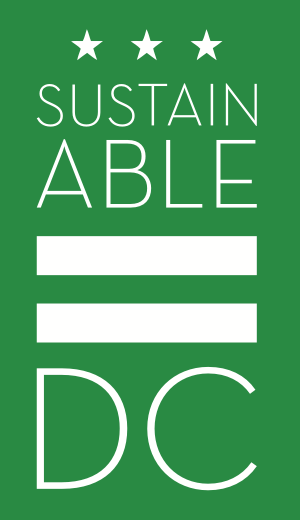

According to the Department of Energy and Environment's "Equity Framework," equity refers to fair treatment, access, opportunity, and advancement for all peoples. Equity leads—but does not end—with a focus on race. The Mayor’s Office of Racial Equity defines racial equity as the process of eliminating racial disparities and improving outcomes for the District by prioritizing measurable change in the lives of residents who are Black, Indigenous, and people of color.
As a process, it involves intentionally changing policies and practices and meaningfully involving those most impacted by structural racial inequity in government decisions. As an outcome, it means the elimination of racial disparities so that racial identity is no longer a predictor of opportunities, outcomes, or the distribution of resources for residents of the District, particularly Black, Indigenous, and people of color residents. The plain language version of the definition is that racial equity is about improving the lives of residents and communities harmed by racism to strengthen the District as a whole.
Equity is a core component of sustainability. Long-term environmental protection and economic development cannot be truly achieved without the third “e” of sustainability: equity. In creating a truly sustainable future, it is vital to ensure the meaningful participation of all members of a community.

Sources: U.S. Census Bureau, American Community Survey, 2019 American Community Survey 1-Year Estimates; DC Policy Center, "State of D.C. Schools, 2022-23: Challenges to pandemic recovery in a new normal"
Note the Equity section of the Sustainable DC 2.0 Plan does not list a goal; it includes four actions.
Status:  The average progress score of equity actions is between “Significant Progress” (3 out of 4) and “Completed or Institutionalized” (4 out of 4). See annual progress reports for details.
The average progress score of equity actions is between “Significant Progress” (3 out of 4) and “Completed or Institutionalized” (4 out of 4). See annual progress reports for details.
What's Been Done?
- The Department of Energy and Environment created an Equity and Engagement Program Analyst position in 2015 to better incorporate equity into Sustainable DC programs and broaden community engagement.
- DC Health established the Office of Health Equity in 2015 to implement a “health in all policies” approach and incorporate equitable health as a priority in new policies and programs.
- In 2020, District Council passed the REACH Act, which required providing racial equity training to all District Government employees and established an Office of Racial Equity in the Council and in the executive branch.
- The Council Office of Racial Equity publishes Racial Equity Impact Assessments to examine how proposed bills or resolutions will affect different racial and ethnic groups.
- The Mayor’s Office of Racial Equity has released several resources and collaborated with District agencies to pilot racial equity tools, complete departmental assessments of racial equity, and develop racial equity action plans.
- The Mayor’s Office of Racial Equity launched a required training for all managers, titled “Advancing Racial Equity: The Role of Government” in 2021. In 2024, the training was opened up as an option for all District Government employees to take.
- Building on the efforts of an earlier equity working group, the Department of Energy and Environment formalized an Equity Committee in 2021. The Committee led an agency-wide engagement process to inform development of the agency’s Equity Framework and Racial Equity Impact Assessment.
- Branch and division managers at the Department of Energy and Environment were required to implement the agency’s Racial Equity Impact Assessment, Team Readiness Assessment, and Racial Equity Impact Assessment Reflection Sheet in 2022.
- Several District Government agencies have prioritized underrepresented residents in their engagement activities. Examples include the Food Policy Council prioritizing locating meetings across the District, particularly in Wards 7 and 8, at times convenient to residents, and providing food at select meetings. The Department of Parks and Recreation, as part of its Ready2Play Master Plan process, targeted outreach in Wards 7 and 8 and created a phone line to engage groups with limited virtual access. The Office of the State Superintendent of Education used an equity rubric that prioritizes schools serving vulnerable populations and those that have not previously had access to programmatic supports when screening applications for the Outdoor Learning Technical Assistance program.
What is Left to Do?
- Continue providing equity-focused training for all District Government employees.
- Focus community engagement on communities that have been historically under-represented.
Last updated: August 2025

